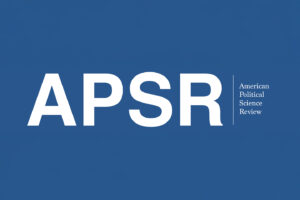
The views expressed are those of the author and do not represent the views of the SNF Agora Institute or Johns Hopkins University.
Author: Hahrie Han
Activists power American democracy—and democracies around the world—by taking actions designed to make their voices heard in the political process. Activists are not born, however, they are made. Research shows that the vast majority of activists get involved through civic associations, but we have little experimental research on how these organizations shape activism (Bimber et al. 2012; Munson 2009; Verba et al. 1995).
Drawing on data from three field experiments showing that creating a relational organizational context makes targets more likely to sign petitions, recruit others, and attend meetings, this article argues that civic organizations can have a powerful impact on activism. The article thus builds on and extends a burgeoning body of experimental research on the social basis of political participation to examine forms of activism that are increasingly common modes of citizen involvement in the 21st century.
This article is distinct from that body of research in two particular ways, however. First, it looks not at voting as an outcome but instead at broader forms of political activism, and second, focuses on organizational context as an independent variable. By providing experimental evidence of the effect of organizational context (and the strategic choices organizations make to shape that context) on activism, the article introduces a new set of variables related to organizational context to consider in understanding why people participate.
